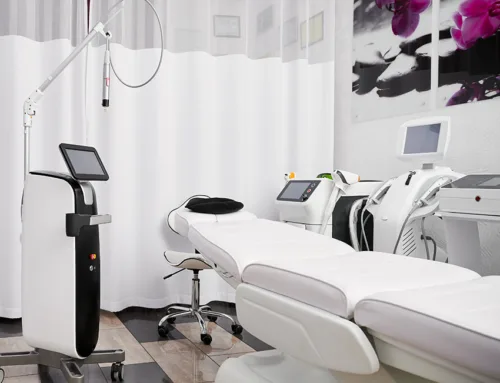What is Marketing Communication in Healthcare?
In the rapidly evolving healthcare industry, healthcare marketing communications are crucial for building patient engagement and trust. But how can healthcare providers convey their messages clearly and ethically in an information-saturated market? This article provides strategies and insights to help healthcare professionals enhance their communication methods while adhering to the industry’s stringent standards of compliance and patient care.
Key Takeaways
- Healthcare marketing communications go beyond mere promotion; they focus on enhancing patient journeys, personalizing experiences, and empowering patients through education. By using storytelling and digital content, healthcare providers can achieve better health outcomes.
- Healthcare organizations build brand loyalty by understanding and segmenting their target audiences, crafting authentic and patient-centered communication strategies, and engaging communities through targeted campaigns.
- Integrated marketing services, omnichannel marketing approaches, strategic advertising, public relations, and effective crisis management play crucial roles in advancing healthcare organizations, sustaining brand identity, and maintaining patient trust.
The Intersection of Patient Experience and Healthcare Marketing
Marketing within the healthcare sector goes beyond merely promoting health products or services. It fundamentally revolves around enhancing the patient’s entire experience. Marketers in this field are pivotal in guiding patients through each step, from raising awareness to assisting with informed choices, all while ensuring top-tier care. In an era where individuals actively engage and make decisions about their health, adopting a patient-focused marketing strategy is essential.
To effectively manage the patient journey, especially during initial awareness and subsequent decision-making processes, establishing a robust digital presence is key for healthcare marketers. Leveraging data from online interactions allows them to customize digital encounters that exceed patient expectations. This involves generating comprehensive content when patients seek information about ailments, treatments, and providers, aiding them in making well-informed choices.
In essence, successful health care marketing strategies transcend merely attracting new patients. It’s crucial to empower patients by providing educational resources and transparent communication as an integral part of any marketing effort.
Crafting a Patient-Centered Communication Strategy
What makes certain healthcare companies more popular than others? Often, their success is due to their adept use of communication within their marketing strategy. Incorporating storytelling into doctor-patient interactions greatly enhances patient satisfaction, increases referrals, and improves health outcomes by creating a deeper emotional bond. A truly impactful healthcare marketing approach places the patient at its core, striving to cultivate trust and personal rapport.
This reliability is vital in times of crisis. During such periods, it’s imperative for a healthcare organization to adopt compassionate and empathetic communication strategies that address both the emotional and informational needs of patients. In doing so, healthcare organizations maintain a commendable reputation and ensure patients continue to feel secure, thereby solidifying patient-provider trust.
Leveraging Digital Content to Educate and Enlighten Audiences
In the digital age, information is at everyone’s fingertips. Healthcare marketers can leverage this by offering digital content that educates patients on various health conditions and available treatments. This not only helps patients understand their symptoms and treatment options but also fosters trust, encouraging them to seek care. Incorporating digital marketing strategies can further enhance the reach and effectiveness of this educational content.
By educating audiences through valuable digital content, healthcare marketers play a key role in informing patients and shaping their health decisions. An informed patient is an empowered patient, and when patients feel empowered, they are more likely to trust and engage with their healthcare providers.
The Power of Personalization in Patient Communications
Healthcare providers are recognizing the importance of catering to individual patient preferences, even when dealing with similar health conditions. Personalized healthcare marketing is key in this regard. By effectively harnessing and managing health data across multiple channels, healthcare professionals can gain a comprehensive perspective on each patient, supporting the delivery of more personalized care.
By collecting and analyzing information such as age, gender, location, and socio-economic status from patient demographics, healthcare marketers can customize their messaging strategies for distinct audience segments. Predictive analytics tools can anticipate future patient behaviors, allowing for:
- Proactive campaign development that resonates with different cohorts.
- Early identification of potential health issues, enabling timely interventions.
- Improved patient engagement and satisfaction rates.
- Enhanced efficiency in resource use and budgeting decisions.
In essence, personalization wields tremendous influence by focusing on fulfilling the unique needs of each patient, thereby significantly elevating the quality of their experience and satisfaction levels.
Building Brand Loyalty Among Healthcare Consumers
Healthcare organizations can foster brand loyalty through several key actions:
- Cultivating an understanding of their specific target audiences
- Categorizing patients according to the distinct needs they exhibit
- Crafting personalized marketing efforts within healthcare that recognize the individuality of each patient
Such approaches considerably strengthen brand loyalty.
When health consumers encounter messages designed to enhance comprehension and adherence, it often strikes an emotional chord, deepening their loyalty towards a healthcare provider. Content tailored for diverse learning styles and shared across various platforms not only improves health education but also cements relationships with patients by generating interest. Nevertheless, cultivating such fidelity requires time and deliberate planning centered around clear goals like:
- Increasing awareness about the brand
- Winning new patients
- Advocating services provided by the organization
These are foundational elements necessary for gaining market share while sparking interest essential for nurturing long-term commitment among consumers in the healthcare market.
Attracting Patients with Authentic Brand Stories
In the realm of healthcare marketing, genuineness is paramount. By presenting real and relatable stories that resonate on an emotional level, healthcare brands have the power to draw patients in and give their brand a personal touch. When these stories are constructed with a clear narrative structure, comprising an introduction, escalation of events, peak moments, and conclusion, they generate interest in audiences deeply and aid in making the memory stick.
Engaging Communities Through Targeted Campaigns
In healthcare marketing, how can organizations craft campaigns that appeal to their varied patient base? The solution is found in customized strategies. Effective healthcare marketing must:
- Mirror the variety within its patient communities
- Steer clear of any exclusionary approaches
- Launch endeavors that build confidence across all segments of the community
Healthcare marketers who keep an eye on social media trends and apply data analysis are better equipped to understand patient perspectives and tailor their communication efforts accordingly for enhanced engagement with the community. Leveraging a range of communication mediums from direct interactions with staff to ambiance considerations, as well as unified brand imagery, ensures deeper connections with patients. Personalization stands out in healthcare marketing because it empowers patients by offering them control over how they wish to be reached, thereby increasing active participation.
Advancing Healthcare Organizations with Integrated Marketing Services
In the field of healthcare marketing, harmonizing marketing communications is essential for providers. This strategic integration enhances the efficacy of various communication tools and boosts their collective impact, making it more likely that they will meet their intended objectives.
Healthcare organizations should develop a detailed creative style guide to keep messaging consistent and in line with brand identity across multiple platforms. By doing so, they not only preserve uniformity in branding but also strengthen their image in the perception of both patients and the wider community.
The Importance of Omnichannel Marketing in Healthcare
In today’s era of easy access and convenience, patients expect a healthcare experience that mirrors retail and digital media environments. This is particularly true for Gen Z, who indicate high levels of interaction with user-generated content. Such changes in patient expectations call for a comprehensive omnichannel strategy within healthcare marketing.
Medical providers, including all types of healthcare professionals, enhance brand loyalty and improve satisfaction levels among their patients when they present a cohesive omnichannel journey. This integration combines the benefits of digital mediums such as telemedicine with conventional face-to-face consultations. Healthcare marketers can thus deliver continuity in care along with tailored experiences at every point of contact by blending modern platforms with traditional methods to address health needs effectively.
Driving Business Growth with Strategic Advertising Initiatives
Within the dynamic realm of healthcare, adept advertising can serve as a pivotal element for differentiation. By harmonizing various marketing communications elements, organizations can magnify their messaging effectiveness and propel business advancement.
To execute strategic advertising effectively, healthcare entities should:
- Synchronize their promotional content like ads and direct mailings to reflect a cohesive brand persona
- Engage meaningfully with intended audiences
- Enhance patient inflow while also bolstering retention rates
- Cultivate reliability and esteem in the eyes of consumers
- Achieve substantial outcomes that matter
Role of Public Relations in Healthcare Marketing
Public relations serves as a cornerstone in the domain of healthcare marketing, crucial for crafting public perception and managing the reputation of healthcare services. Effective coordination of press releases is essential to ensure accurate messaging and safeguard the brand identity of companies within the healthcare sector.
Maintaining an admirable standing is paramount for organizations involved in healthcare, with public relations playing a pivotal role. By steering how these entities are viewed by patients and society alike, it fosters trust—a significant factor contributing to patient loyalty and satisfaction levels.
Crisis Management: Preserving Trust in Challenging Times
In times of crisis, the spotlight is often cast on healthcare organizations. It’s during these periods that their ability to communicate effectively is put to a stern test. Healthcare institutions should consider:
- Forming a dedicated team for communication in crisis
- Crafting a plan tailored for such communications
- Providing crisis communication training to this specialized team
- Instituting clear guidelines for engaging with both media and the public when emergencies strike
By adopting these measures, healthcare establishments can ensure they maintain robust communication capabilities throughout any emergency, keeping all stakeholders adequately informed.
To be effective in times of crisis, it’s essential that health organizations have access to an established manual containing recommendations as well as pre-designed templates and lists for checking off tasks. This helps them navigate various situations adeptly and offer timely responses. By proactively shaping the narrative through open and transparent public interaction before others weigh in, it assists in preserving trust while reducing negative fallout amid the health crisis.
By working together across borders, there’s an opportunity to strengthen crisis communication efforts significantly. Sharing uniform messaging broadens our approach to managing global public health crisis cohesively.
Measuring the Effectiveness of Healthcare Marketing Efforts
In the realm of healthcare marketing, it is crucial to evaluate the success of marketing endeavors as much as initiating them. Metrics deemed essential for measuring campaign efficacy include:
- Page views
- Conversion rates
- Duration spent on a webpage or scroll depth
- Incoming backlinks
- Standing in keyword rankings
Analytics instruments serve to monitor these varied indicators, encompassing content interaction levels, engagements across social media platforms, and frequency of email opens. These instruments provide valuable insights into KPIs, empowering those in charge of healthcare marketing to gauge their campaigns’ successes accurately and adjust strategies when necessary.
Through continuous monitoring and assessment of their promotional activities, professionals within healthcare can ensure they are aligned with achieving set objectives while also safeguarding a robust position in the market share contest.
Setting Clear Objectives and Tracking Progress
The cornerstone of effective healthcare marketing is the establishment of clear goals. Applying the SMART criteria to set these objectives can greatly enhance results, ensuring that they are:
- Clearly defined
- Quantifiable
- Attainable
- Relevant to your mission
- Time-bound
To improve the likelihood of achieving these targets, it’s recommended to regularly evaluate and modify them according to progress with weekly assessments suggested. For healthcare marketers aiming to identify which aspects of their campaign are most successful in meeting Key Performance Indicators (KPIs) and fulfilling business aims, several critical techniques include:
- Performing A/B tests
- Evaluating data and analytics
- Implementing customer surveys
- Tracking social media interactions
- Gathering input from all relevant parties
Employing these strategies empowers healthcare marketers with an evidence-based approach allowing them to fine-tune their initiatives effectively towards triumph.
Decoding Analytics: Insights into Patient Engagement and Conversion
Analyzing data can offer significant insights into how patients engage and make decisions about their healthcare. By establishing clear objectives, those in the field of healthcare marketing can concentrate on tracking crucial metrics that serve as essential signs of a campaign’s effectiveness.
With the current digital environment, patients utilize online resources to evaluate different healthcare choices. The influence that patient reviews have on decision-making underscores the importance of gaining knowledge from data regarding patient behaviors and preferences. Such knowledge allows healthcare marketers to pinpoint areas for enhancement and formulate strategies that align with what their intended demographic seeks.
Navigating Compliance and Ethical Considerations in Healthcare Marketing
Marketing in the healthcare sector must navigate a complex landscape of regulatory and ethical guidelines. Ensuring adherence to laws such as HIPAA, designed to safeguard patient data, is essential for marketers within this industry.
Maintaining high ethical principles is crucial in healthcare marketing. Communication must remain respectful of patients’ privacy while offering truthful and equitable information. This conscientious approach is key to upholding the reputation of the health sector.
Balancing Promotion with Patient Privacy
The pursuit of successful promotion in healthcare marketing must always respect patient confidentiality. Marketers need to recognize that any record relating to medical or health issues that can pinpoint an individual is considered sensitive and should be treated with utmost care to maintain the privacy of patient.
Organizations engaged in healthcare marketing are mandated by law to secure express consent before disclosing any patient information, ensuring it is guarded by stringent data protection protocols. Prior explicit approval from patients is essential for organizations looking to incorporate their details into targeted marketing initiatives. To ensure anonymity, marketers are advised instead to employ de-identified success narratives or endorsements within their promotional content.
Practices involved in healthcare marketing should not only include but prioritize measures such as encryption and comprehensive cybersecurity strategies designed specifically for defending electronic records containing personal health information against unauthorized access.
Ensuring Accuracy and Integrity in Health Messaging
Two foundational elements of ethical healthcare marketing are accuracy and integrity. Marketers in the healthcare industry have an obligation to present information that is both precise and equitable, rooted in evidence-based medical standards, with a goal to support beneficial public health outcomes.
Obligations of those engaged in healthcare marketing include:
- Refraining from presenting overstatements or promises that could deceive patients
- Upholding the truthfulness and reliability of health-related messaging
- Cultivating trust among patients
- Making a constructive impact on overall public health
Summary
We’ve traversed the landscape of healthcare marketing communication, exploring its crucial role in the patient journey, its impact on brand loyalty, the importance of integrated marketing services, the role of public relations, the significance of measuring marketing effectiveness, and the need for navigating compliance and ethical considerations. Effective healthcare marketing isn’t merely about promoting services or products; it’s about enhancing the patient experience, building trust, and ultimately contributing to better health outcomes.









